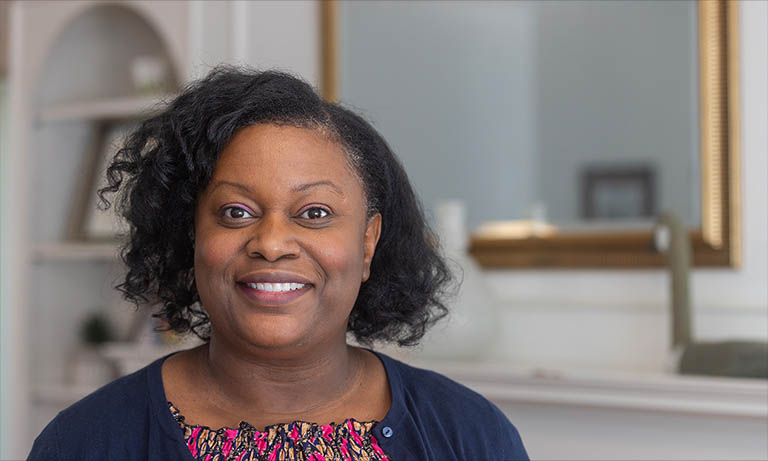
HWS News
24 September 2024 A Firm Foundation: Mental Health at HWS
At the start of the academic year, Director of the Counseling Center Tasha Prosper reflects on mental and emotional support systems available to the HWS community.
Tasha Prosper, a staff psychologist and Director of the HWS Counseling Center, curates mental health initiatives at HWS drawing from her background in multicultural counseling and research at Columbia University. She has developed a wide range of support systems to serve students and the broader HWS community.
Here, Prosper shares her approach to wellness, updates about mental health resources, and the important connections between wellness and a successful educational experience.
What should students know about the Counseling Center and its programs?
Sometimes it’s taken for granted that everyone knows what self-care is or has the ability and knowledge of how to foster their own emotional wellbeing. We offer students these tools and set them on a path of self-care and emotional nourishment that will hopefully aid them for a lifetime.
We offer in-person individual counseling, as well as teletherapy with even more counselors than our on-campus staff to support a huge range of student needs and backgrounds. We also have group therapy services, which address self-care, anxiety, and support for first-year and transfer students, among other specific areas of concern.
Finally, counseling services at HWS are free, which is unique in higher education.
You’ve been counseling students at HWS for almost eight years now. What are some of the programs you’re most proud of?
At the start of my first year on campus, I founded the HWS Sister Circle group for women students of color. The counseling center has since replicated that model and offered a myriad of support groups for all students including the First Year Support Group and the Self Care Support Group. The counseling support groups are facilitated by my amazing peers who are well studied in mindfulness, multicultural concerns, and anxiety management.
The Counseling Center has also begun training students and staff across campus in “QPR,” a leading suicide prevention program. In addition to providing the campus with suicide prevention training, our staff have worked with campus partners to usher in JED campus recommendations and wellbeing initiatives like 24/7 counseling availability for students, multicultural counseling options and an upcoming campuswide mental health first-aid training.
What are some of the most important areas of focus for you this academic year?
This year we aim to further support student wellness with easily accessible services — walk-in, no-appointment-needed, same day availability for students struggling with immediate mental health concerns.
Where does mental health fit in the context of the campus community?
I believe that part of community-building for the campus starts with a strong mental health foundation. Like the roots of a tree with a firm foundation, we all rise up to represent unique, beautifully diverse and firm branches with budding flowers that support the vibrancy of the campus collective.
Director of the Counseling Center Tasha Prosper received her Ph.D. in counseling psychology from Columbia University, with a research focus on race-related stress. Her theoretical approach pulls heavily from interpersonal and existential psychology frameworks. Her professional interests include race-based stress, community activism, religion/spirituality, and meditation. Prosper has enjoyed facilitating dynamic group therapy offerings including mood and food, spirituality support, women of color support, and finding meaning in life support groups. She is a two-time recipient of the Davis Putter Scholarship and Activism Award. She completed a pre-doctoral fellowship at Memorial Sloan Kettering Cancer Center of New York, and a post-doctoral fellowship at the University of South Carolina.



